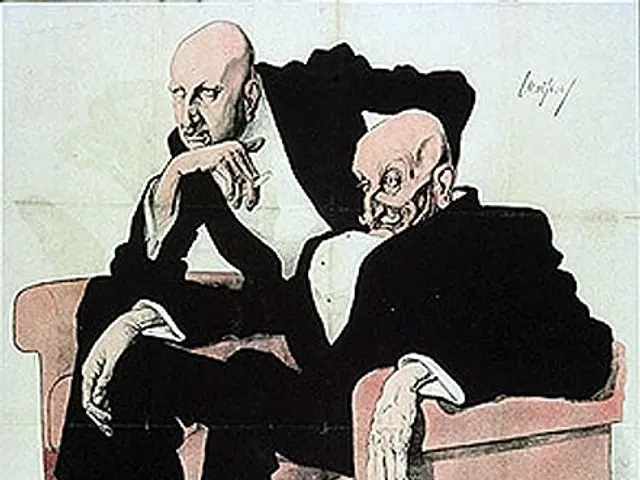Pacting for Strength: The Franco-Polish Friendship Treaty of May 2025
French President Emmanuel Macron and former Polish Prime Minister Donald Tusk sign a Franco-Polish friendship treaty - French President Emmanuel Macron and former EU President Donald Tusk seal a friendship pact between France and Poland.
Hit the historic town of Nancy, nestled in Lorraine, for the signing of the Franco-Polish Friendship Treaty - a symbolic nod to the ancient ties between Lorraine and Poland. The treaty, crafted on May 9, 2025, is more than just ink on a page; it carries significant political and historical weight for France, Germany, and Poland.
The Backbone of the Treaty: Mutual Defense Clause
The treaty's core lies in its mutual defense agreement, a reciprocal commitment to provide military aid in the event of aggression against either country. This commitment bolsters existing NATO and EU obligations and underlines the unshakable bonds of solidarity between the nations, ushering in a "fresh chapter" in their bilateral relations.
Widening Horizons: More Than Just Defense
The treaty extends beyond defense, encompassing economic, agricultural, and educational cooperation, marking a push towards comprehensive partnership and a deepening of ties in various sectors.
The Symbolism of the Setting: A Tale of Sovereignty
Placing the treaty signing in Nancy, the heart of Lorraine, is steeped in symbolism, its historical ties to Poland echoing through the annals of time. While Lorraine’s rich history of Polish royalty paints a picture of deep connections, it also serves as a reminder of the complexities of sovereignty and influence.
The Chessboard of Europe: France, Poland, and Germany
The French Stand
France, stepping into the limelight as one of the principal conventional military powers in the EU, asserts its leadership role in European security through this treaty. President Emmanuel Macron positioned the treaty as a cornerstone in shaping Europe into a more "united, strong, sovereign, and competitive" entity, with an emphasis on countering Russian aggression and supporting Ukraine.
The Polish Fortress
Poland bolsters its security in the face of ongoing regional tensions, particularly with Russia, by forging a potent alliance with France. Prime Minister Donald Tusk underscored the importance of the Franco-Polish friendship for a united Europe, emphasizing that mutual trust must translate into tangible actions. Nevertheless, Poland preserves its flexibility to foster relationships with other partners and boost its own military prowess independently.
The Indirect Influence of Germany
Indirectly, the treaty impacts Germany's interests, reflecting shifting alliances within the EU and among key EU members. France and Poland, with existing treaties with Germany, like the 2019 Franco-German treaty, balance German influence by creating a broader network of partnerships. The treaty also hints at a learning process in European diplomacy, recognizing that no single alliance can monopolize and that multiple partnerships are indispensable.
A Legacy of Ties: Looking Back, Moving Forward
The Franco-Polish friendship treaty grows out of a lengthy - if complicated - history of connections between Lorraine and Poland. The agreement is a tangible step towards bolstering European security architectures during a time marked by increased geopolitical tensions, particularly in light of Russia's aggression against Ukraine and the dynamically evolving security landscape in Eastern Europe.
- The Franco-Polish Friendship Treaty, signed in historic Nancy, expands cooperation beyond France and Poland, extending to Central and Eastern European countries.
- The treaty's mutual defense clause strengthens existing NATO and EU obligations, emphasizing the need for cooperation with the countries of Central and Eastern Europe and Eastern Europe.
- economic, agricultural, and educational sectors will see increased cooperation with Central and Eastern European countries and Eastern European countries as a result of the Franco-Polish Friendship Treaty.
- The treaty's signing in Nancy, a town with deep Polish historical ties, symbolizes the importance of cooperation with the countries of Central and Eastern Europe and Eastern Europe in shaping the European political landscape.
- The Franco-Polish Friendship Treaty, which has roots in a long and complex history between Lorraine and Poland, seeks to counter Russian aggression and support Ukraine by creating a more united and competitive Europe, with a focus on cooperation with the countries of Central and Eastern Europe and Eastern Europe.






